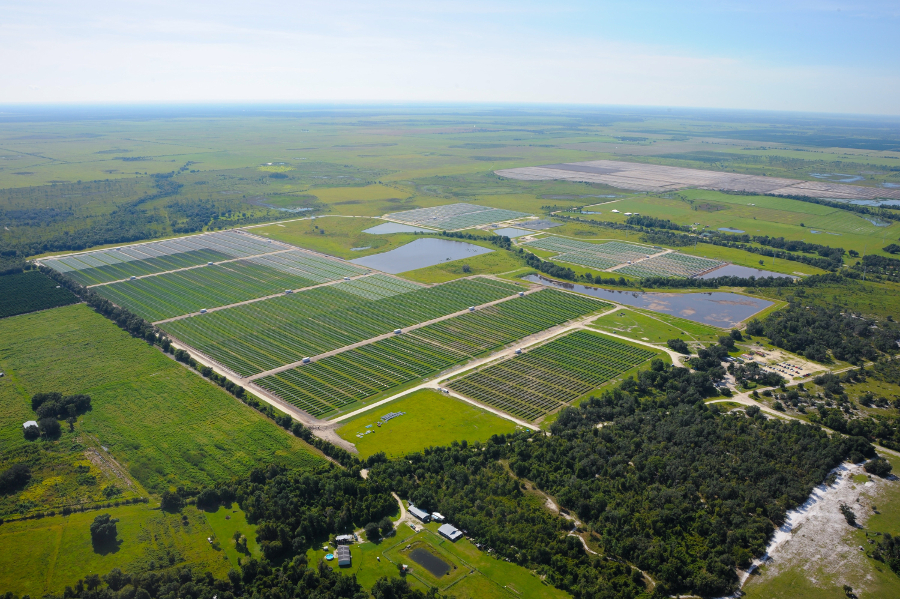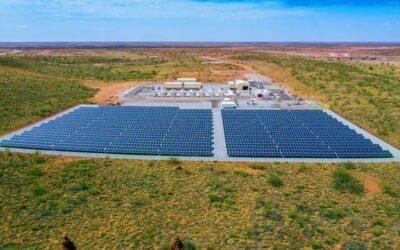
Utility Florida Power & Light claims that a just-completed battery addition will increase output from a large-scale solar farm in its home state, thought to be the first time a DC-coupled solution has been used at this scale in the US.
Some residential energy storage battery systems available in the States and elsewhere already utilise DC-coupling, but the configuration is new for utility-scale plants. FPL’s newly unveiled solar-plus-storage system will be able to integrate into the network surplus energy that would otherwise be ‘clipped’ from an AC-coupled solution during peak generation periods when the sun beats down the hardest.
Enjoy 12 months of exclusive analysis
- Regular insight and analysis of the industry’s biggest developments
- In-depth interviews with the industry’s leading figures
- Annual digital subscription to the PV Tech Power journal
- Discounts on Solar Media’s portfolio of events, in-person and virtual
As with a few other recent projects co-locating batteries with wind or solar, the overall idea behind the project is to create a clean dispatchable energy resource. Using batteries to increase generation yield and to add predictability to the power plant’s output means it will be easier to co-ordinate with the balancing of other assets on the grid network, FPL said.
FPL, part of the NextEra group of companies, will deploy a 4,000kW / 16,000kWh (4MW / 16MWh) battery storage system at FPL Citrus Solar, a 74.5MW PV plant completed in 2016 and one of three of the same capacity developed in Florida’s DeSoto County by the utility.
FPL said NextEra Energy companies have been researching and testing battery storage tech to assess the potential benefits for “several years”, with around 130MW / 100MWh of battery storage systems under their operation. This included a few pilot projects. Following a rate agreement ruling with the regulator, Florida Public Service Commission, FPL plans to develop 50MW of battery storage in an undetermined timeframe – the utility said in the “next few years” in a release. Parent company NextEra has recently unveiled plans for battery projects in Arizona.
FPL president and CEO Eric Silagy said the firm had “set a standard” for low-cost solar development and was now “looking at the next level” – adding batteries.
“By harnessing more solar energy from the same power plant, this has the potential to further reduce our fossil fuel consumption and save our customers even more money on their electric bills,” Silagy said.
FPL has added 520MW of PV capacity in the past two years and will have completed a further 300MW by the end of February. The utility touted the ability of solar to improve FPL’s carbon emissions profile and keep customer rates low for the long term.
Meanwhile, development of an energy storage market for Florida has lagged behind other leading states in the US, with few project announcements emerging. However, a recently proposed piece of legislation called for the establishment of a pilot programme within Florida’s Department of Agriculture and Consumer Services to investigate and correctly value the use of solar-plus-storage systems in preventing or coming back from energy supply and delivery problems stemming from natural disasters and other causes.






